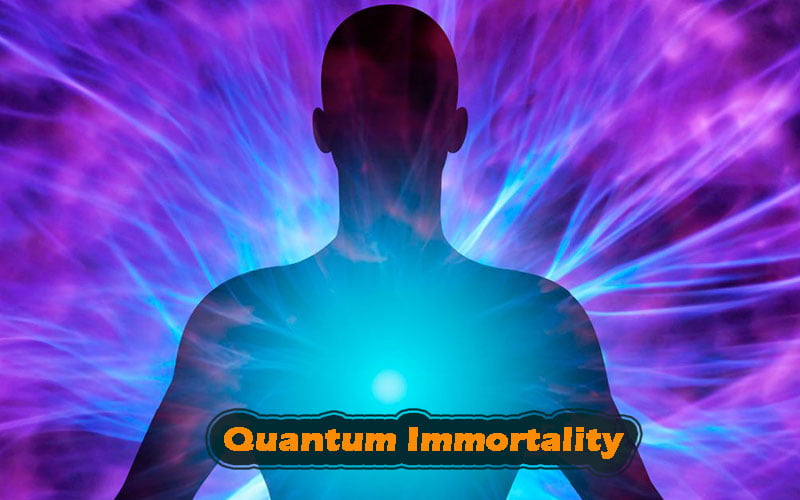
Have you ever pondered the concept of immortality? The idea of living forever has captivated human minds for centuries. While it remains a topic of speculation and fascination, a fascinating theory known as “Quantum Immortality” has emerged in recent years. In this article, we delve into the depths of this captivating concept, exploring its origins, implications, and the ongoing scientific discourse surrounding it.
Quantum immortality is a mind-bending hypothesis rooted in quantum mechanics and the multiverse theory. According to this concept, an individual’s consciousness continues to exist in parallel universes, ensuring their subjective experience of immortality. It suggests that each time we face a life-threatening situation, our consciousness branches off into different universes, with one version of us perishing while another version continues to exist.
To comprehend the foundations of quantum immortality, we must embark on a journey into the mysterious realm of quantum mechanics. At the subatomic level, particles exhibit peculiar behaviors, defying classical physics. Concepts such as superposition and entanglement become prevalent, leading to the development of theories like the Many-Worlds Interpretation (MWI).
In the realm of quantum mechanics, particles can exist in multiple states simultaneously, known as superposition. This intriguing phenomenon challenges our everyday understanding of reality. In the context of quantum immortality, it implies that our consciousness can exist in various states simultaneously, branching off into countless parallel universes.
Entanglement, another fundamental principle of quantum mechanics, describes the interconnectedness of particles regardless of spatial separation. When two particles become entangled, their states become correlated, and altering the state of one particle instantaneously affects the other, regardless of distance. This phenomenon holds significance in the context of quantum immortality, suggesting that our consciousness may be entangled across parallel universes.
The Many-Worlds Interpretation, introduced by physicist Hugh Everett III in the 1950s, postulates the existence of a multitude of parallel universes. According to this interpretation, every possible outcome of an event manifests in a separate universe. Therefore, in a life-threatening situation, our consciousness branches off into universes where we survive and universes where we do not.
The implications of the MWI are profound. It suggests that even though we may witness others perishing in a particular universe, our consciousness will persist in a parallel universe where we survive. This forms the basis of the quantum immortality theory, offering a potential explanation for the phenomenon of subjective immortality.
It presents a paradoxical scenario. If every individual who experiences a life-threatening situation continues to exist in a parallel universe, why do we not witness countless miraculous survival stories? The answer lies in the anthropic principle, which states that our observations and experiences are inherently biased toward universes conducive to our existence.
In the vast landscape of the multiverse, only a fraction of universes are suitable for complex life forms like humans. The anthropic principle asserts that our conscious experience of reality is contingent on residing in a universe compatible with our existence. Consequently, we are bound to observe a world where life-threatening situations often result in our survival, giving the illusion of quantum immortality.
A: It remains a speculative hypothesis rooted in quantum mechanics. While it stimulates intriguing debates among physicists, it has not been empirically proven.
A: Testing this hypothesis poses significant challenges. Since it deals with the subjective experience of consciousness across parallel universes, empirical verification becomes elusive.
A: Physicist Max Tegmark and philosopher Nick Bostrom have explored the concept of quantum immortality, adding to the ongoing discourse on the topic.
A: It raises profound questions about the nature of reality, consciousness, and the subjective experience of life. It intertwines physics with metaphysics, bridging the gap between science and philosophy.
A: It does not provide a direct path to physical immortality. It primarily focuses on the subjective experience rather than bodily preservation.
A: It need not necessarily conflict with religious beliefs. It offers a different lens through which to explore the mysteries of existence, inviting philosophical contemplation and speculation.
Quantum immortality stands at the intersection of quantum mechanics, philosophy, and metaphysics. As a captivating hypothesis, it challenges our perception of reality and the nature of consciousness. While it remains an unproven concept, it opens up avenues for thought-provoking discussions on the fundamental fabric of existence. As we continue to unravel the mysteries of the universe, the concept of eternal life, whether through quantum immortality or other means, will undoubtedly persist as an enduring fascination of humanity.
Recommended other topics: Divine Consciousness-The Secrets of Spiritual Awakening










© InfoDoot. All Rights Reserved.